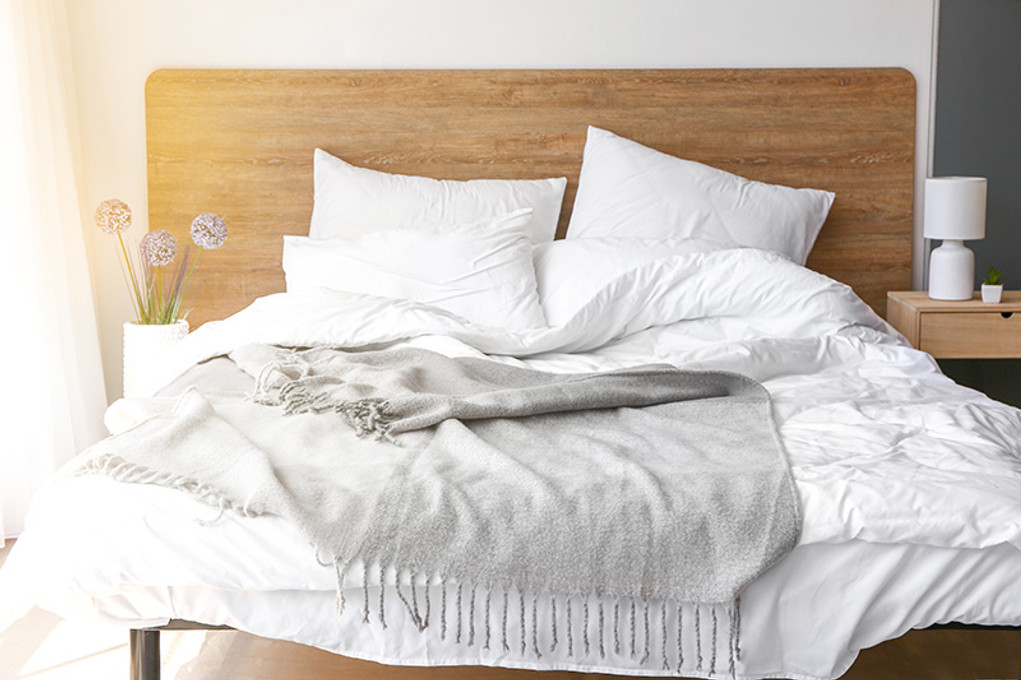
Managing Symptoms of Anxiety and Sleeping Well with Sharon Johnston
Posted by Oil Garden on 2nd May 2024
Is sleep a priority for you? My new year’s resolution was to aim for 8 hours a night. Like most changes, this goal has taken some effort and of course, I’ve had ups and downs – like small children with midnight needs, working late or being sociable. But despite the minor interruptions, my Sleep Tracker tells me I’m doing well and I am feeling more energized and motivated thanks to my regular 8 hours of slumber.
There are plenty of reasons why getting a good 7-8 hours a night is worth the extra effort, here are just a few:
- Sleep improves your mood. It’s no surprise that tired can equal grumpy – which is understandable since the thinking part of our brain, that filters our emotions, is not able to function properly! Being well rested improves your ability to cope with stressful situations and think clearly.
- It helps to prevent weight gain. Sleep helps to regulate the hormones involved in appetite suppression. When you are tired your brain signals the need for glucose to function, AKA we reach for sugary snacks. We also tend to go for the high calorie foods for that boost energy quickly.
- Sleep supports your immune system. The brain makes melatonin (the sleep hormone which spikes at bedtime) which also acts as an antioxidant supporting cellular function. Your immune cells and inflammatory mediators function differently during the day and night. 8 hours of sleep helps to keep the levels healthy and regulate their restorative function. This is the reason sleeping during illness aids your recovery.
- It improves memory and concentration. A tired brain is going to struggle to stay focused. During sleep the brain forms connections that help you process and remember information. A coffee late afternoon might seem like a good idea, but is often counterproductive as it can affect your ability to sleep later that night due to the caffeine being a stimulant.
- Sleep reduces your risk of heart disease, diabetes and other chronic conditions. Sleep deprivation can increase blood pressure and those inflammatory mediators which are linked to numerous health conditions.
- So rather than increasing the stress hormones we want to be reducing them, both during the day and when it is getting closer to bedtime. These are my top tips for helping to manage anxiety and improve your sleep quality:
- Avoid caffeinated drinks, especially between meals or on an empty stomach. If you struggle to give up caffeine then at least ensure it is drunk within 30 minutes of a meal to lessen the intensity of the cortisol surge.
- Do not smoke.
- Eat for blood sugar regulation, avoid skipping meals and include a serve of protein, healthy fats and fibre rich vegetables in each meal. This will help to stablise blood sugar, reduce mood swings and food cravings. Limit sugary snacks and desserts to special occasions but again if you can’t resist then within 30 minutes of your meal is preferable to snacking on sweets through the day.
- Avoid large meals before bed. If you know you won’t be eating until late have a protein rich snack earlier in the afternoon, or plan to eat a more substantial lunch so your final meal is a moderate size.
- Drink alcohol in moderation, the effects are mildly sedating initially, but can cause sleep disturbances later as the body processes the alcohol out of your system.
- Exercise during the day, this helps oxygenate the parts of the brain responsible for relaxation and emotional processing. But avoid intense exercise at night as vigorous work outs also release cortisol. Low intensity practices like yoga or Pilates are good evening alternatives.
- Practice deep breathing or meditation. A daily practice switches on the relaxation parts of our brain, spending more time in this state enables us to cope with challenging days and improve focus and productively.
- Create a relaxing bedtime routine and environment – have a bath or diffuse essential oils that promote relaxation such as Sweet Orange, Frankincense and Ylang Ylang. Avoid electronic devices at least 1 hour before bed (most phones have a sleep winddown feature) or try reading, listening to music or doing a meditation instead.
- If a racing mind is keeping you awake, don’t lay in bed thinking, if you can get up and go to another room for 10 minutes, have a drink of water, then listen to relaxing music or a sleep meditation.
